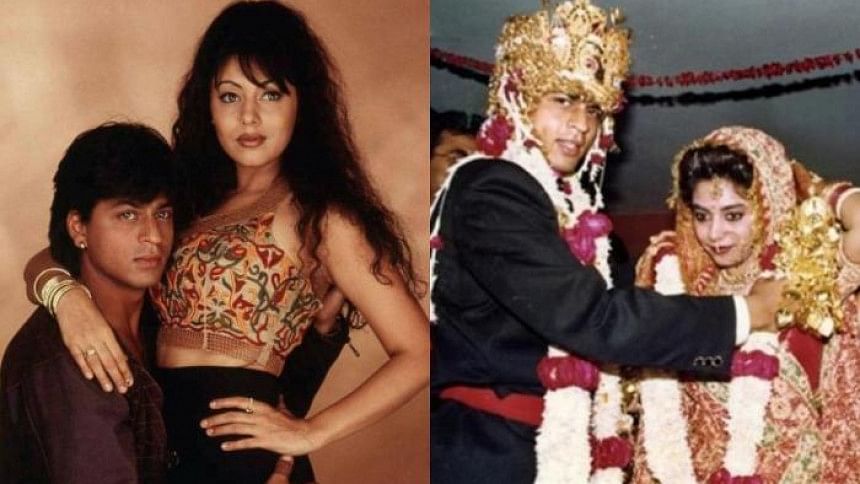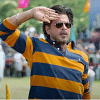Shah Rukh Khan, the man behind the silver screen

Shah Rukh Khan, the megastar of Indian cinema, ascended to superstardom with his blockbuster hits over the span of his three-decade-long career. Yet the superstar's unequivocal popularity cannot be defined by his substantial net worth or the movies that made him what he is today. It is Khan's polite demeanor, witty and unmatched sense of humour, calm, dignified, quiet, and courteous nature, along with his sweet yet handsome, gentle smile, that made him a household name in the Indian subcontinent.

Khan is often called an opportunist actor of rejected scripts. He found his way into Indian cinema with roles rejected by other acclaimed actors and blended in with his characters with his natural acting prowess, genuine charisma, but most of all, his faith in the uncertain, humility, and hard work.
The actor, who came from a lower middle-class, progressive, and intellectual family, learned acting in theatre, and at one point in his life, he also ran a canteen to take care of his family. As we see him today, at the apex of his career and with groundbreaking movies in his pockets, his stories of struggle, perseverance, and missed and seized opportunities, it is his un-starry behaviour that sets him apart from others. He is so relatable to his audiences that even his worst-ranked movies are crowd favourites.

Khan advocated for love throughout his life and received unequivocal love from his fans in return. Neither his hits nor the spate of flops tarnished his sheen; if anything, the love for the star had been burnished by his struggles.
He had risen above his legacy as a superstar and net worth or a film star image and became a global icon, and the reason is very simple: what made him a favourite of the masses was that he seemed genuine.
In a 2017 Ted Talk, we hear the versatile superstar say, "I learned that whatever moves you, whatever urges you to create, to build, whatever keeps you from failing, whatever helps you survive, is perhaps the oldest and simplest emotion known to mankind – and that is love."
We see a boy next door, Shah Rukh Khan, who is the biggest actor in the Indian Film Industry, and he still seemed humble, honest, and hilarious. He still appeared as a family man, and there was no publicity campaign behind it. He never shied away from confessing his love for his family, nor did he ever falter to accept his failures in certain films. He always seemed like an open-to-discussion person who is eager to learn and evolve.

"Madness of a particularly nice and romantic kind is an absolute prerequisite for a happy and successful life," he states in a lecture at the United Kingdom's University of Edinburgh. "Don't ever treat your little insanities as aberrations that ought to be hidden from the rest of the world. Acknowledge and use them to define your own way of living in the only life you have," he stated as he gladly, wholeheartedly embraced his own idiosyncrasies in his demeanor and lifestyle.
We see this star protecting his wife and daughter while leaving amidst crowds in airports, public places, and events; we see him dancing merrily with his wife and friends; we also see this megastar attending his son's annual functions and scolding him when necessary. We see an orphan child in him; we also see him as a loving husband, a protective and, at times, a vulnerable father, a responsible brother, and a good friend who opts for his friend's first movie only because he lost a bet.
Popular director and producer Karan Johar shares he suffered long for his sexuality and personality, which is often considered unconventional and mocked in the Indian film fraternity, and how Khan made his journey a little more bearable.
"It's what he didn't say. It's what he didn't bring up. It's what he normalised that I sat funny or walked funny. Whenever I said campy things, he laughed. It isn't what he said; it's what he didn't say. It's all that matters," Karan said in a recent interview.

We see this man bending down with humility to doormen, elders, and senior actors, and his attitude and respect towards his female colleagues are widely acclaimed and so uncommon in cinema history that almost always belittled women as beings. Khan helps all, but he has never been accused of making an influence of groupism or his power in Bollywood.
Even critics never doubted his acting prowess but did widely criticise his movie choices and his inclination towards popular and commercial cinema. An actor with this stature and acting ability could have been worth more in life-centric, experimental cinema. But if we take a closer look at his filmography, we see him portray unconventional characters in unconventional yet timely cinema. From "Baazigar", "Darr", "Asoka", "Swades", "Paheli", "My Name Is Khan", "Fan", and "Zero"-- to now the upcoming "Dunki"-- we see him excel at every character he portrays with so much adaptability, potential, and success. His Midas touch makes everything relatable, believable, and acceptable.

In his speech at the Ted Talk, we hear the superstar say, "I truly believe humanity is a lot like me; it is an aging movie star, grappling with all the newness around itself, wondering whether it got it right in the first place, and still trying to find a way to keep on shining regardless."
He is famously self-obsessed, too, yet he never seems proud or prudent. His admiration for himself seems childishly sweet and genuine. He does not deny his failures or drawbacks; he owns it with grace as the self-assured man he is.
"As an aging movie star who has been made to believe that there is a possibility of a world which is completely, wholly, self-obsessively, in love with itself. A world really has to be you to create a world, which is its own best lover," he says in awe of the world he made around himself.
Khan says confusion is the root of all the clarity in the world; he doesn't take himself seriously enough, and he is not so clear about his own ideas, so he never stops respecting other people. This humility, compassion, wisdom, and ingenuity set him apart, still and forever.

 For all latest news, follow The Daily Star's Google News channel.
For all latest news, follow The Daily Star's Google News channel. 









Comments